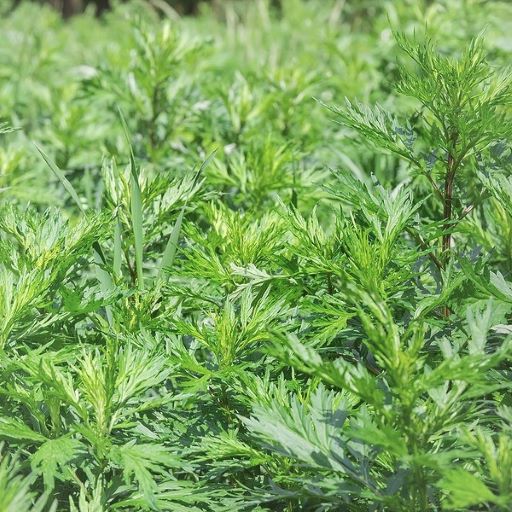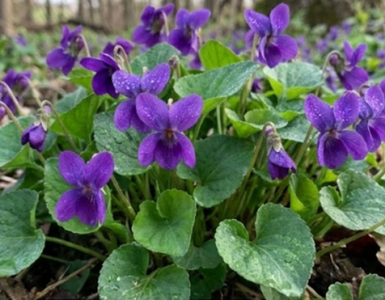Mugwort (Artemisia vulgaris), a hardy perennial plant, has been revered for centuries in various cultures for its medicinal, culinary, and even mystical properties. Native to Europe, Asia, and North America, this versatile herb is known for its distinct aroma and numerous health benefits. Let’s dive into the many uses and properties of mugwort, exploring why it continues to be a valued plant in traditional and modern practices.
Health Benefits of Mugwort
- Digestive Health Mugwort has been traditionally used to improve digestion. It stimulates the production of bile and gastric juices, which can help alleviate indigestion, bloating, and stomach cramps. It also has mild laxative properties, promoting regular bowel movements.
- Menstrual Health Mugwort is well-known for its ability to regulate menstrual cycles. It is used to relieve menstrual cramps, promote menstrual flow, and address symptoms of premenstrual syndrome (PMS). The plant’s emmenagogue properties make it helpful for women experiencing irregular periods.
- Improves Sleep Mugwort is commonly used to promote relaxation and improve sleep quality. Its mild sedative properties can help reduce anxiety and induce restful sleep, making it a popular choice for individuals struggling with insomnia.
- Anti-inflammatory and Antimicrobial Properties The plant contains compounds such as flavonoids and terpenoids, which have anti-inflammatory and antimicrobial effects. These properties make it useful in treating minor skin conditions, wounds, and infections.
- Supports Mental Health Mugwort has a history of being used to enhance mental clarity and focus. It is believed to help reduce stress and anxiety, promoting a sense of calm and well-being.
- Potential Antiparasitic Effects Traditional medicine systems often use mugwort to expel intestinal parasites. Its antiparasitic properties have been recognized for centuries, although more scientific research is needed to fully validate this benefit.
Key Properties of Mugwort
- Rich in Antioxidants Mugwort is packed with antioxidants like flavonoids and coumarins, which help protect the body from oxidative stress and reduce the risk of chronic diseases.
- Essential Oils Mugwort contains essential oils such as cineole and camphor, which contribute to its distinctive aroma and therapeutic properties. These oils are often used in aromatherapy and topical treatments.
- Emmenagogue This property makes mugwort effective in stimulating menstrual flow and alleviating menstrual disorders.
- Nervine Mugwort acts as a nervine, supporting the health of the nervous system and helping to calm nervous tension.
Common Uses of Mugwort
- Traditional Medicine
- Tea: Mugwort tea is a popular way to consume the herb, helping with digestion, menstrual health, and relaxation.
- Tinctures and Capsules: These concentrated forms of mugwort are used for more targeted health benefits.
- Poultices and Ointments: Used topically to soothe skin conditions and minor wounds.
- Aromatherapy Mugwort essential oil is used in aromatherapy to promote relaxation, mental clarity, and emotional balance.
- Culinary Uses In some cultures, mugwort is used as a culinary herb to flavor dishes such as soups, stews, and rice cakes. It has a slightly bitter and aromatic taste that adds depth to recipes.
- Dream Enhancement Mugwort is traditionally associated with dream enhancement and lucid dreaming. It is often placed under pillows or burned as incense to promote vivid dreams and improve dream recall.
- Spiritual and Mystical Uses Mugwort has a long history of use in spiritual practices. It is considered a protective herb, often used in rituals to cleanse spaces and ward off negative energy. In some cultures, it is burned as smudge sticks or carried as an amulet for protection.
- Fumigation Mugwort has been used historically to fumigate homes and ward off insects and pests.
Precautions and Side Effects
While mugwort offers numerous benefits, it’s essential to use it with caution:
- Allergic Reactions: Mugwort may cause allergic reactions, especially in individuals allergic to plants in the Asteraceae family (such as ragweed, daisies, and marigolds).
- Pregnancy and Breastfeeding: Pregnant women should avoid using mugwort, as it can stimulate uterine contractions and potentially lead to miscarriage.
- Overuse: Consuming excessive amounts of mugwort can lead to side effects such as nausea, vomiting, and liver toxicity.
Always consult with a healthcare professional before incorporating mugwort into your health regimen, especially if you are pregnant, nursing, or have existing health conditions.
Mugwort is a powerful and versatile herb with a rich history of use in traditional medicine, culinary arts, and spiritual practices. Its benefits range from improving digestion and regulating menstrual cycles to promoting relaxation and enhancing dreams. However, as with any herbal remedy, it’s crucial to use mugwort responsibly and consult with a healthcare provider when needed. Whether you’re sipping mugwort tea or using its essential oil for relaxation, this remarkable plant has much to offer for both body and mind.






Add comment